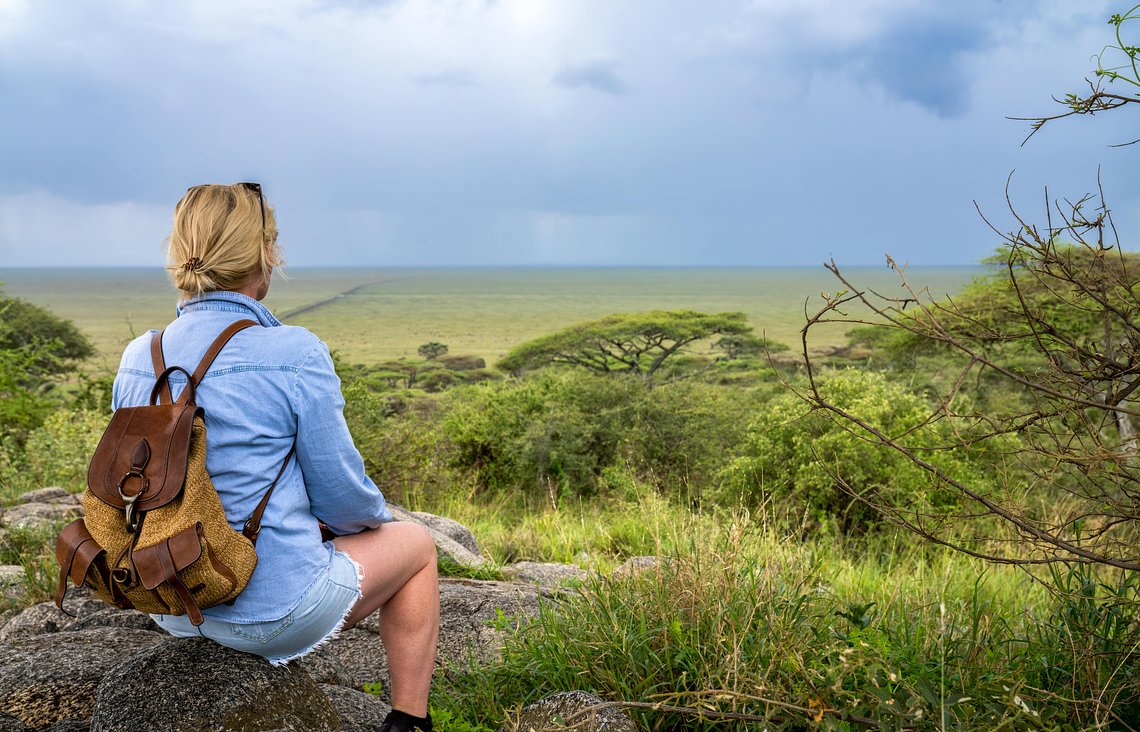Vaccines Needed for Travel to Africa
Planning a trip to Africa? Discover essential vaccines for safe travel, from Yellow Fever to routine shots. Stay healthy and explore the continent with confidence using this complete pre-travel health guide for women adventurers.

 by Doni Belau
·
Tue 22 Apr 2025
by Doni Belau
·
Tue 22 Apr 2025
Vaccines Needed for Travel to Africa: What to Know
Africa is a dream destination for adventurous women travelers, offering everything from savannahs and wildlife to ancient cities and vibrant cultural experiences. Whether you’re planning a Moroccan escape, an Egyptian river cruise, or a safari in Kenya, one thing remains essential: staying healthy on your journey. Understanding the vaccines needed for travel to Africa will help you explore with confidence, knowing you’ve taken the right precautions.
While the idea of vaccines might seem scary, the reality is simple - most travelers only need routine immunizations and a few extra precautions, depending on where they’re headed. This guide breaks it all down for you, ensuring your health stays a top priority without overshadowing the excitement of your upcoming trip.
Ready to start your African adventure? Explore our incredible Africa trips here and let’s start planning!
Join a Women-Only Trip to AfricaKey Takeaways
- Africa is a diverse and breathtaking destination – From Morocco’s spice markets to Namibia’s sand dunes, the continent offers a range of landscapes, wildlife, and cultural experiences.
- Vaccines are essential for a safe and smooth journey – While routine vaccinations are recommended, additional vaccines like Yellow Fever may be required depending on your itinerary.
- Advance planning keeps your trip stress-free – Consulting a travel health professional at least 4–6 weeks before departure ensures you have the necessary vaccinations and medications.
- Health precautions go beyond vaccines – Safe eating and drinking habits, insect protection, and carrying a well-stocked travel health kit help prevent illness while traveling.
- Smart preparation lets you enjoy Africa to the fullest – A few simple health precautions ensure you can fully embrace the continent’s wildlife, history, and stunning landscapes with peace of mind.
Why Visit Africa?
Africa is a breath-taking continent. The spice-laden souks of Morocco beckon with their intoxicating scents, while the towering pyramids of Egypt whisper stories of an advanced civilization. In Kenya and Tanzania, golden savannahs stretch endlessly, full of majestic wildlife, while Namibia’s towering sand dunes shift and glow under the African sun. Journey through Uganda’s misty mountains to lock eyes with a silverback gorilla, stand in awe at the thunderous Victoria Falls spanning Zambia and Zimbabwe, or bask on the sun-drenched beaches of Mozambique’s turquoise coastline. From the rich history of Ethiopia to the lively rhythms of Senegal and Ghana, Africa is a mosaic of experiences waiting to be explored.
- Incredible Wildlife: Witness the Big Five - lions, leopards, rhinos, elephants, and buffalos - on a safari in Kenya or Tanzania.
- Ancient History: Walk in the footsteps of pharaohs at the pyramids of Giza or explore ancient rock-hewn churches in Ethiopia.
- Vibrant Cultures: From Maasai tribes to Moroccan artisans, Africa is a mosaic of cultures, traditions, and warm hospitality.
- Luxury and Adventure: Whether you want to sleep under the stars in a luxury safari camp or cruise down the Nile on a traditional Dahabiya, Africa combines adventure and comfort.
With so much to experience, taking a few simple health precautions will ensure your trip is smooth and stress-free.
Essential Vaccines for Travel to Africa
Before setting off on your African adventure, check that you’re up to date on routine vaccines and consider additional ones based on your destination. According to the Centers for Disease Control and Prevention (CDC) and the World Health Organization (WHO), the following vaccinations are recommended:
Routine Vaccinations (Make sure these are up to date):
- COVID-19 (Required by some countries, recommended for all travelers)
- Measles-mumps-rubella (MMR)
- Diphtheria-tetanus-pertussis
- Varicella (chickenpox)
- Polio
- Influenza (yearly flu shot)
Mandatory Vaccinations Per Country
Different African nations have specific vaccine requirements for entry. Here’s a breakdown of what you’ll need:
- Ghana, Uganda, Rwanda, Democratic Republic of Congo: Proof of Yellow Fever vaccination required.
- Kenya, Tanzania, Zambia, Namibia: Yellow Fever required if arriving from an at-risk country.
- South Africa, Morocco, Egypt: Routine vaccines recommended, but no mandatory vaccines.
- Nigeria, Senegal, Côte d’Ivoire: Yellow Fever vaccine is mandatory.
To make things easy, we suggest checking the CDC’s travel recommendations for the latest updates.
Traveling solo but want the support of an amazing group? Our women’s travel groups offer curated experiences, friendships, and unforgettable journeys.
Join a Women-Only TripHow to Stay Healthy and Safe While Traveling in Africa
Staying healthy on your African adventure is all about preparation. Here’s how to ensure a safe and enjoyable trip:
- Visit Your Doctor Early – Schedule an appointment with your doctor at least 4–6 weeks before your trip to allow time for necessary vaccinations, discuss health risks, and receive advice tailored to your destination in Africa.
- Keep Your Vaccination Card Handy – Some African countries require proof of Yellow Fever vaccination upon entry. Ensure you have an updated vaccination card, and keep it safely with your passport, as it's often required for border entry checks.
- Take Malaria Prevention Seriously – Malaria is a serious concern in many African countries. Consult your doctor about anti-malarial medication, use insect repellent, sleep under mosquito nets, and take all prescribed medications as directed during your travels.
- Practice Safe Eating and Drinking – To avoid stomach issues, only drink bottled water, avoid ice in drinks, and opt for well-cooked foods from trusted sources. Stay cautious about street food and anything with questionable hygiene practices.
- Pack a Travel Health Kit – Your travel health kit should include essential items such as insect repellent, hand sanitizer, basic medications (like pain relievers and antihistamines), and any prescribed medication. Be prepared for potential medical needs during your travels.
- Get Travel Insurance – Secure travel insurance that covers medical emergencies, including emergency evacuation, hospital stays, and medical repatriation. This is especially important if you plan on going on adventurous safaris or activities with inherent risks involved.
Conclusion
Traveling to Africa is an experience that will stay with you forever, from the golden dunes of the Sahara to the wildlife-rich plains of the Serengeti. Taking the right health precautions ensures that you can immerse yourself fully in the continent’s wonders. The key takeaway? A little preparation goes a long way. Most vaccinations are straightforward, and any additional ones simply depend on your travel plans, ensuring you can embrace Africa’s magic with peace of mind.
Ready to explore Africa? Book your dream adventure and discover the beauty, history, and culture this incredible continent has to offer.
Ready to travel with a group of incredible women? Contact us now, share your travel dreams, and let’s plan your next adventure together!
Join Our Women’s Travel Community!FAQs
What vaccines are needed to travel to Africa?
Routine vaccinations plus additional ones depending on your destination. Check with your healthcare provider before traveling.
Do I need a COVID-19 vaccine to travel to South Africa?
While not always required, it is recommended to be fully vaccinated.
How long before traveling to Africa do I need vaccinations?
Ideally, 4–6 weeks before departure to allow time for effectiveness.
Do I need malaria tablets for an African safari?
If traveling to a malaria-prone area, consult your doctor about preventative medication.
Can I travel without a Yellow Fever vaccine?
Some countries require proof of vaccination, especially if arriving from a country with Yellow Fever risk.
How do I find out specific vaccine requirements for my trip?
Check the CDC’s travel website or consult your doctor for country-specific recommendations.